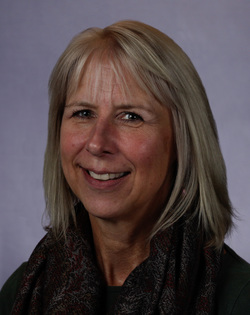|
Jesus said, “For where your treasure is, there your heart will be also.” Matthew 6:21
By the time you read this article we will have two Sundays remaining in our Stewardship Season. The season always incorporates two major efforts: 1) each member discerning how he or she will employ time and talents through the congregation, and 2) each member or family being asked to make a financial pledge. So it’s time for me to say something about this latter activity: practicing generosity. Or, more plainly, the stewardship of money. The best definition I have ever heard for stewardship is this: Stewardship is everything you do after you say, “I believe.” That everything includes money. Here’s the rub, though: People don’t want to hear the church say it needs money. But if people don’t hear that the church needs money, they may not give. And that is why the church talks about money—but not the only reason. I once heard the story of a pastor who was talking with a young couple about his work as a minister. (The wife in this couple had grown up in the congregation, had known this pastor for many years, and had seen other pastors come and go there for more than 30 years.) “Who,” they asked their pastor, “pays you for your work? Do you get paid by the larger church?” It was a completely innocent question. This young couple, who had enjoyed the fellowship of the congregation , and who regularly shared their talents and limited time there, genuinely did not understand that their congregation was the sole means by which their pastor made a living. And if they didn’t understand that principle, how many other people had probably missed it? Calvary Lutheran Church depends on the people who come through its doors on Sunday (or who mail in their checks on Monday) to financially support the congregation’s mission: the service, the worship, the fellowship, the maintenance of the facility, the upgrades, the faith development—all that happens within and beyond its walls to indicate who we are and what we believe. If the members and friends of the congregation do not give money, the church will not be able to thrive. But there are some challenges about giving that have to be mentioned here too: If some people give generously, and others give very little or nothing, the church is likely to struggle—especially if those who give generously are no longer able to be part of the community. The truth about financial stewardship is this: The most robust congregation is the one in which every member and friend gives some percentage (even if it’s a fraction of a percent) of their income to their faith community. Why? Because where we put our money says something about our values and priorities. If more people give to the ministry, more people are invested in the ministry. It’s that simple. But why “percentage giving”? Throughout Scripture God calls on his people to give—to benefit those who lead the worship, the poor who can’t defend themselves, the foreigner who depends on the kindness of the faithful, landowning people. In Scripture giving includes food offerings, leaving untouched a portion of land for the poor and foreigners to glean, and monetary offerings. In all cases the mandate is to regard God (and God’s priorities) as the believer’s first priority. A great way to practice God’s priority is percentage giving: Designate a percentage (mine is currently 7% to the church and another portion elsewhere), and pay that amount right alongside the mortgage, utilities, medical bills, and groceries. Percentage giving is intentional: When you designate a percentage of your income, you know how much is coming out of your bank account to go to the church. You can compare that percentage to how much you spend on other “soft expenses” like Starbucks, Barnes&Noble, and dining out. (This is an informative exercise to illustrate to yourself your priorities: Imagine learning that you have spent more at eating out than in your offering to the Church!) You can also set a goal of increasing the percentage you give, for example, from 4% one year to 4.5% the next year; this makes incremental increases more manageable. Gratitude is not just about words, it is us unwrapping the gift of our faith—the talents and skills we’ve been given, the physical resources we have that we might share with others, the money we can share to make our church and the world a better place. Please prayerfully deliberate about your financial gift to Calvary, and write it down on the pledge form for 2014. The more your leaders know about your financial commitment, the better we’ll be able to set a financial and ministry plan that fits our means and attends to our 2020 Long-Range Plan. And consider giving according to percentage, with the goal of gradually increasing that pledge as resources permit. Your intentionality about practicing generosity will allow our ministry to thrive and our congregation to be more vital. In Christ, Lori A. Cornell
0 Comments
Leave a Reply. |
Rev. Lori A. Cornell
Calvary's Pastor Jake Schumacher
Intern Pastor Archives
March 2017
Categories
All
|
Location |
CONTACT UsCalvary Lutheran Church
2415 S. 320th Street, Federal Way, WA 98003 (253) 839-0344 phone (253) 839-0345 fax [email protected] Office Hours: Monday - Wednesday & Friday 11 a.m. - 4 p.m. |


 RSS Feed
RSS Feed
